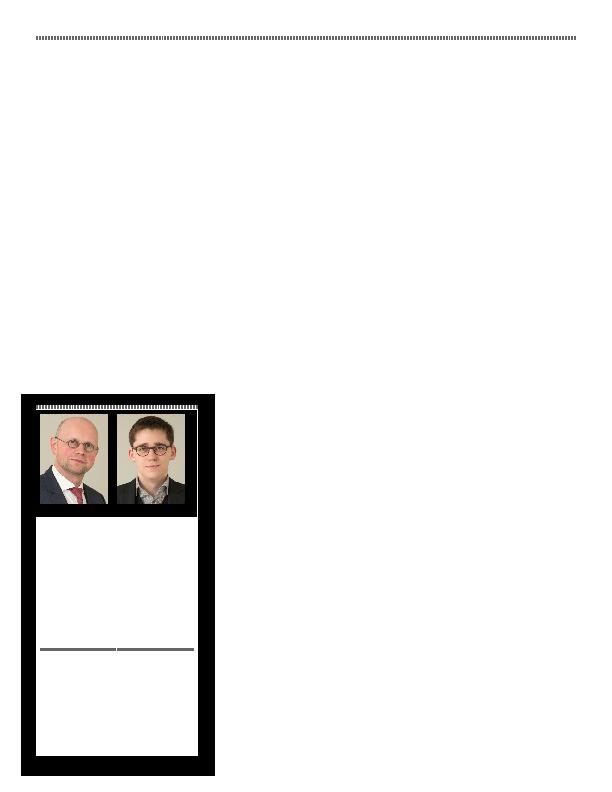
in Belgium has been exempt from the
application of VAT (value-added tax) in
Belgian regulation. This was the case
since the VAT regulation was accepted
in Belgium. As a result of this, the owner
of the rented property cannot deduct the
VAT they have paid on the construction
or renovation of the building. In order to
be able to deduct the VAT on costs that a
business has incurred, these costs have to
be made in order to enable an economic
activity, which is subject to the VAT
regulation, which is clearly not the case
for rental activities.
of Belgian real estate had the competitive
disadvantage of not being able to recover
the VAT on the expenses they made
on the buildings they rented out. In all
neighboring countries, the deduction
of the VAT on these expenses has been
accepted for a long time.
Evidently this led owners to search
for ways in which they could put their
property at the disposal of people without
it being considered as "rental activity."
Ever since the "Temco-judgment" by
the European Court of Justice,
a relatively passive activity linked simply
to the passage of time and not generating
any significant added value. Based on
this, letting has an essentially passive
characteristic.
The fact that additional services are
being provided along with the rental
agreement does not exclude the fact that
this is a "rental activity." The services
provided are either independent from the
"rental activity" and thus subject to VAT
or considered to be a part of the "rental
activity," in which case they are excluded
from the VAT regulation.
When letting, or renting, of real estate
becomes part of an entire package of
services that is mandatory to the occupier,
it becomes more than a passive activity.
Then the availability of the property is
no longer the main characteristic of the
contract between parties. The package of
services on the other hand is considered
the essential element of the agreement.
Because the services that are being
provided are a main part of the contract,
this is no longer considered to be a "rental
activity" since it is no longer a passive
provided lead this contract to be more
"active."
A classic example of this exception to
the exemption of VAT concerning "rental
activities" is the letting of a business
center. Because of the additional services
that are being added once the business
center is being rented, it is considered to
be a whole package of services and not
solely the supply of offices. The conditions
for this exception have been clearly laid
out by the Administration in a Circulaire.
a basic package of (essential) services to
the occupiers. These services cannot be
excluded for a lower cost of the package.
If these conditions are met, the letting of
a business center can be considered as a
service subject to the VAT regime since
it's no longer considered to be a "rental
activity."
Agreements
at least partially to mitigate this
competitive disadvantage and has worked
out the optional application of VAT on
"rental activities."
must apply to (a part of) a building.
Letting of terrain or grounds will still be
VAT exempt except if this terrain is rented
together and as an integral part of the
rental of the building.
Second, the tenant needs to use the
rented property in order to perform an
economic activity, which is subject to
VAT (even if this activity is exempted
from VAT, for example "rental activities").
Therefore, the optional VAT system
specializing in corporate and real estate law. He
developed the business pack, offering clients
benefits including free first-line assistance, free
credit management and conducting certain
procedures at flat-rate prices.
where he is part of the business law department.
Wolvengracht 38 bus 2
Brussels, Belgium 1000
toon.delie@orys.be
orys.be